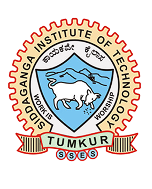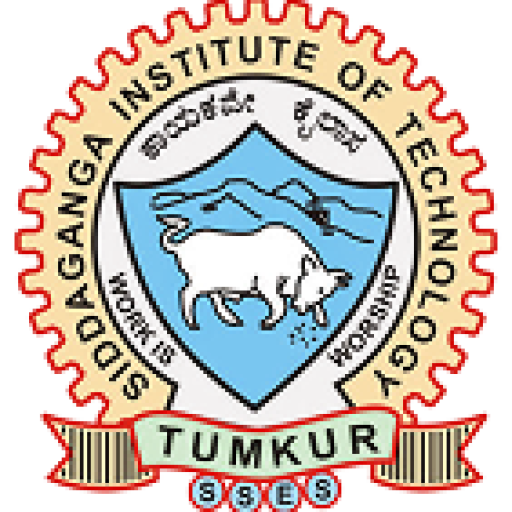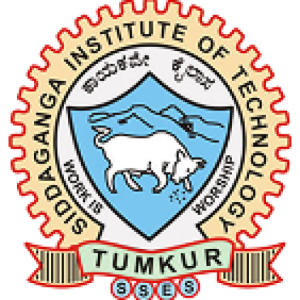Department of Physics
Overview
The Department of Physics was established in 1963. With continuous infrastructure development since 1963, today the department is equipped with two well established Engineering Physics Labs catering to the needs of First year B.E. autonomous curriculum. At present the department has three teaching faculties among them two are with doctorate degree. In addition to them there are two supporting staffs to assist the departmental activities. The Department of Physics has been recognized as the Research Center by VTU, Belgaum since 2006. The research center is actively involved in the area of spectroscopy, crystallography, nanocomposites, radiation physics, materials science and allied domain. Eight students have received PhD from the center and seven students are currently pursuing their PhD. Five research projects funded by VGST, Government of Karnataka and Two projects funded by DST – Government of India were completed. Two projects sanctioned by DST(WOS-A) and UGC-DAE CSR are ongoing in the department. The department has published more than 150 papers in international/national journals and conferences
Program Details
- I/II Semester UG:
- Physics for Computer Science and Engineering
- Physics for Electrical and Electronics Engineering
- Physics for Civil Engineering
- Physics for Mechanical Engineering.
- Ph.D. (Physics)
Vision & Mission
Vision:
To promote and popularize the potentials of basic Physics in interdisciplinary engineering domains leading to societal and technological welfare.
Mission:
To promote the knowledge of Applied Physics among the students so that they can apply it in the thrust areas of Engineering and Technology.
Student Life & Activities
Seminars & Workshops – Hosted by leading physicists and industry experts.
Research Groups – Student-led initiatives in astrophysics, quantum computing, and AI applications in physics.
Industry Visits – Exposure to high-tech physics applications in engineering and R&D.
- Two Day Workshop on Basic Rietveld Refinement Analysis (Sponsored by TEQIP-II) on 24th and 25th March 2017.
- One day outreach Program on “Nanoscience and Technology: Trends and Challenges for the faculty members and UG students in association with Centre for Nano and Soft Matter Science (CeNS), Bangalore on 5th October 2018
- Workshop (online) on X-ray Diffraction Analysis was arranged on 16 to 20, October 2020.
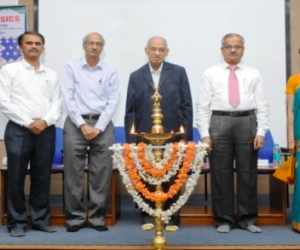
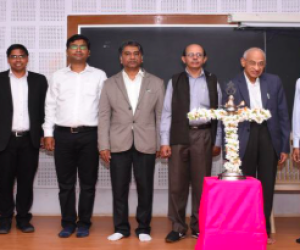

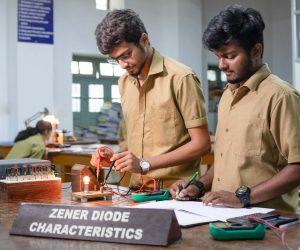
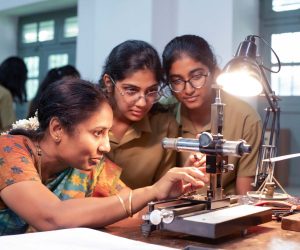
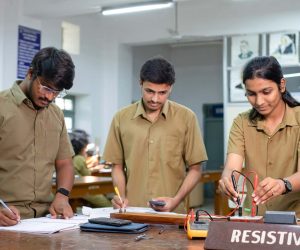
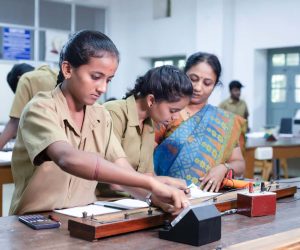
Infrastructure & Facilities
The department is equipped with cutting-edge research and computing infrastructure:
Advanced Physics Labs – Dedicated to optics, electromagnetism, and quantum mechanics experiments.
Innovation Labs – Research spaces for nanotechnology, photonics, and material science.
High-Tech Computational Labs – Equipped with scientific computing tools for simulations and data analysis.
Cryogenics & Superconductivity Lab – Facilities for low-temperature physics and superconductivity research.
Spectroscopy & Imaging Facilities – Access to X-ray diffraction (XRD), scanning electron microscopy (SEM), and Raman spectroscopy.
Remote Access & Virtual Labs – Enables students to conduct simulations and experiments online for flexible learning.
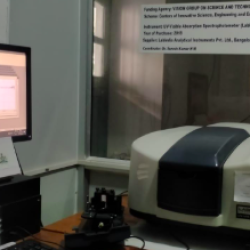
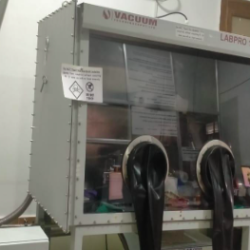
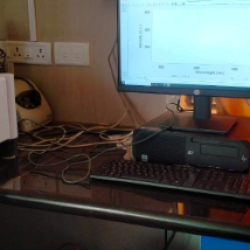
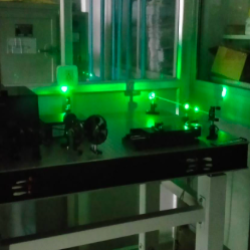
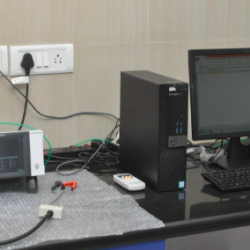
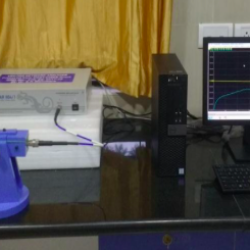
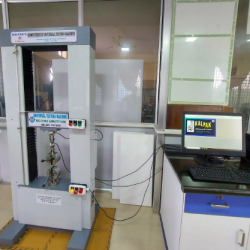
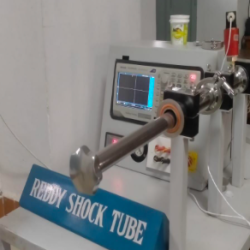
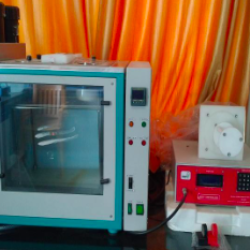
Faculty
The department comprises highly qualified researchers and academicians, specializing in quantum physics, materials science, computational physics, and renewable energy technologies. Faculty members actively engage in government-funded research projects and industry collaborations.
No. Of PhDs : 02
No. of Masters : 01
Total no. of Professors : 01
Academic Programs & Syllabus
Undergraduate Program:
Engineering Physics – Core physics concepts for engineering students.
Ph.D. Program:
- Research opportunities in quantum computing, material science, and photonics.
Syllabus
Program Educational Objectives (PEOs) - UG
Graduates will:
Apply physics principles to develop innovative technologies.
Engage in scientific research and interdisciplinary problem-solving.
Exhibit critical thinking and analytical skills.
Contribute to technological and sustainable development.
Program Outcomes (POs) - UG
Graduates will be able to:
Analyze complex physical phenomena with theoretical and computational tools.
Apply physics concepts to engineering and technology innovations.
Conduct research in advanced materials, nanotechnology, and quantum mechanics.
Demonstrate effective communication and teamwork in research environments.
Commit to lifelong learning and professional ethics.
Achievements & Recognition
- Faculty members of Physics have published about 110 papers in international journals.
- Five research projects sanctioned by VGST, Govt. of Karnataka and three projects awarded by DST, Govt. of India were successfully completed.
- Mrs. Sindhu T, Research Scholar received a project funded by DST under the scheme WOS-A
- Dr. S.R. Manohara has published a textbook “Electricity, Magnetism and Electromagnetic Theory”, S Chand and Company Limited, New Delhi, 2018 [ISBN: 9789-3528-34402]
- Dr Bhargavi K. S. former faculty has been awarded 9th Dr D. C. Pavate Memorial Visiting Fellowship at the Department of Theoretical Physics, University of Cambridge, U. K. for a period of four months from September to December 2016.
- Dr. S.R. Manohara has presented his research work at DCM-2013 at Riva del Garda, Italy sponsored by DST and CICS.
- Dr. H.K.T. Kumar former HoD and faculty, has presented his research work in the International Workshop on Shock Waves -ISSW29, July 14-19, 2013 in Wisconsin Madison University, USA and also chaired the session.
- Dr. Shridhar P M former faculty has received Certificate of Registration of Design from the Patent Office, Government of India for the design of (i) Portable Magnetic Stirrer (335778-001 / 02/12/2020) (ii) Portable Heater (335779-001 / 02/12/2020) (iii) Portable Flux Meter (375249-001 / 08/12/2022) .
Alumni Success
Our alumni work at prestigious institutions, space agencies, and technology companies, contributing to advancements in scientific computing, nanotechnology, and quantum physics.
Admissions
Admissions to M.Sc. and Ph.D. programs are based on academic performance and entrance exams (GATE/NET/JEST). For more details, visit the Admissions Page.
